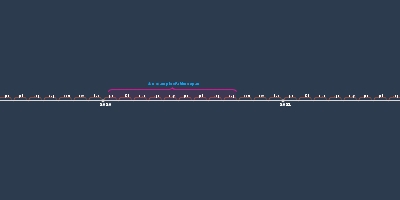1 out 164 ano antes da era comum - Battle of Beth Zur
Descrição:
Wikipedia contributors. (2022, November 24). Battle of Beth Zur. In Wikipedia, The Free Encyclopedia. Retrieved 01:59, November 25, 2022, from https://en.wikipedia.org/w/index.php?title=Battle_of_Beth_Zur&oldid=1123507318The Battle of Beth Zur was fought between the Maccabees led by Judas Maccabeus (Judah Maccabee) and a Seleucid Greek army led by Regent Lysias in October 164 BC at Beth Zur. According to the books of Maccabees, the rebels won the battle, although how significant this victory really was is disputed; it is possible the battle's result was inconclusive. Through a stroke of good fortune for the rebels, the days after the battle likely coincided with news of Seleucid King Antiochus IV Epiphanes's death reaching Judea; rather than continue the campaign, the Seleucid army and Lysias returned to the capital to handle the leadership transition. The Maccabees were able to capture Jerusalem soon after.
The Battle of Beth Zur is recorded in the books of 1 Maccabees (1 Maccabees 4:26–35), 2 Maccabees (2 Maccabees 11:1–15), and Josephus's Antiquities of the Jews Book 12, Chapter 7. The main point of divergence is timing: according to 1 Maccabees, Lysias initiated an expedition, was defeated at Beth Zur, Jerusalem was taken, the Second Temple was cleansed, Lysias makes a second expedition around 162 BC, and Beth Zur is again besieged by the Seleucids in the second expedition. Contrary to 1 Maccabees, 2 Maccabees indicates Lysias's expedition and the Battle of Beth Zur happened after the taking of Jerusalem and the purification of the Temple; this has caused some scholars such as Daniel R. Schwartz to believe that Lysias only made a single expedition to Judea, rather than the account in 1 Maccabees of two expeditions separated by two years.[1][2] Still, the default stance of many historians of the revolt has been to prefer the 1 Maccabees version of events, as the author was writing closer in time to the events and was seemingly an eyewitness to at least part of the Revolt; additionally, some of the documents reproduced in 2 Maccabees seem to support the chronology of 1 Maccabees, as does the Book of Daniel.[3]
Adicionado na linha do tempo:
Data:
1 out 164 ano antes da era comum
Agora
~ 2192 years ago
